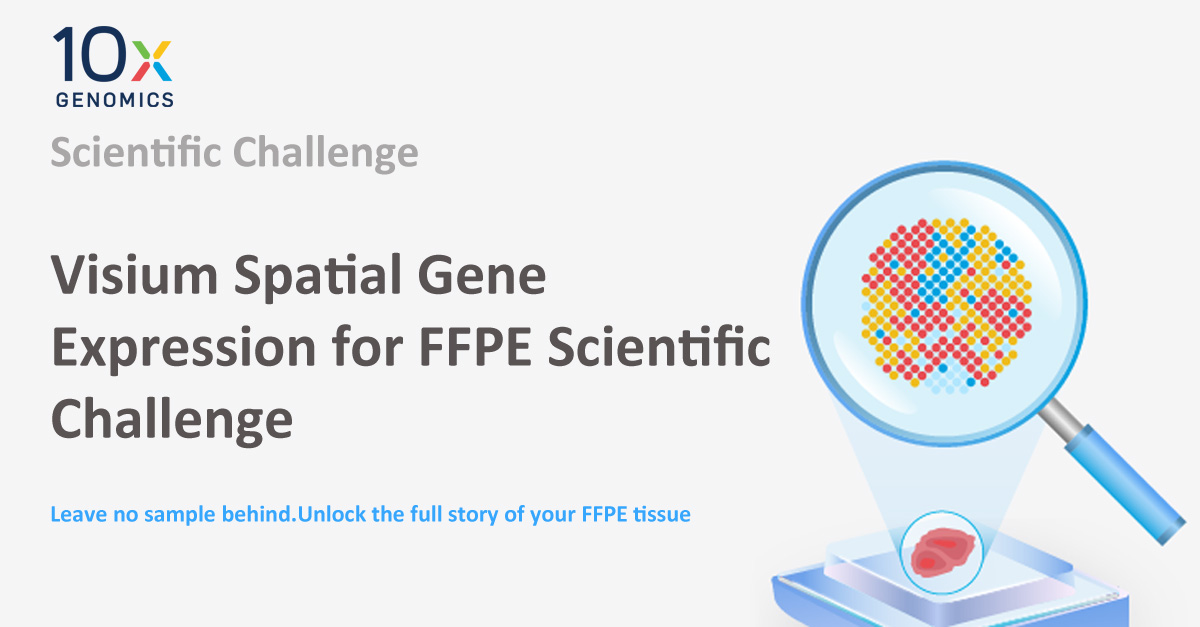10x Genomics is inviting researchers to share innovative ideas for Visium Spatial Gene Expression experiments for FFPE tissues for a chance to win a project performed by 10x Genomics (sample prep, library prep, sequencing, and data analysis). Plus, the winner will get access to the new product before the general public!
Reveal what has been out of reach with whole transcriptome analysis for FFPE
FFPE is the most common method to preserve tissue, but FFPE processing can significantly damage molecules such as RNA, complicating transcriptomic-level investigations trying to uncover underlying biological mechanisms.
Visium Spatial Gene Expression for FFPE samples is a groundbreaking technology that complements traditional pathological analysis by combining the benefits of histological techniques with the massive throughput and discovery power of RNA sequencing. This technology has already enabled new discoveries that will prove instrumental in helping scientists gain a better understanding of biological processes and disease, but we want to hear from you. Share your ideas on how impactful and useful the upcoming Visium Spatial Gene Expression for FFPE samples will be in advancing your scientific research.
Challenge Details
Register then submit an abstract (maximum of 300 words) proposing a project that uses the upcoming Visium Spatial Gene Expression for FFPE tissues (human or mouse only). This solution provides an unbiased, whole transcriptome approach to layering gene expression data onto tissue morphology in FFPE tissue samples. Please specify the question you are hoping to answer, how this technology will help you, the sample types used, the number of tissue sections you would like processed (max 8), and how the results will inform your future studies. A 10x Genomics committee will review and select the winner based on research creativity, scientific impact, and innovation.
10x Genomics will process the selected winner’s samples through the Visium Spatial Gene Expression for FFPE assay workflow, sequence, and provide data analysis.

